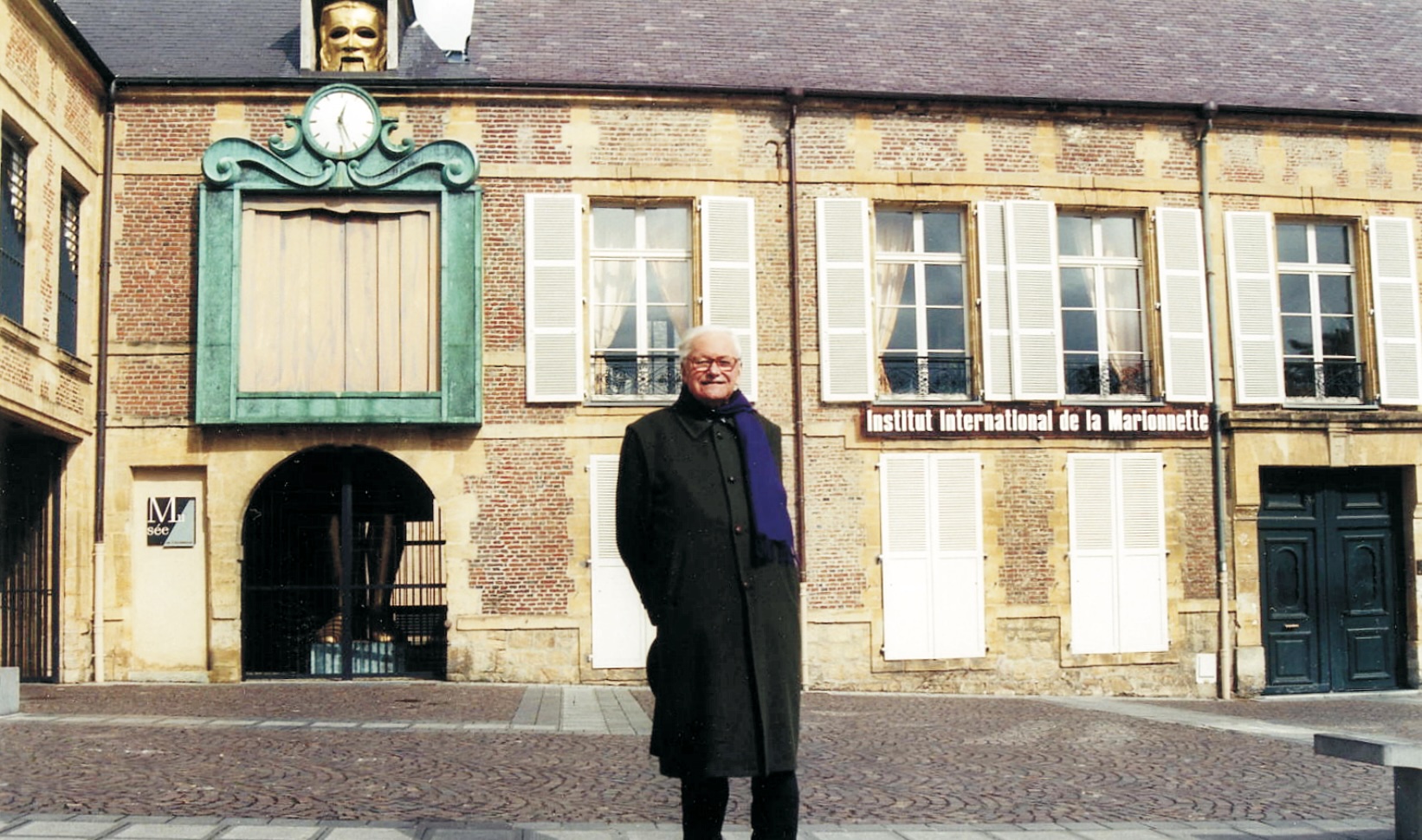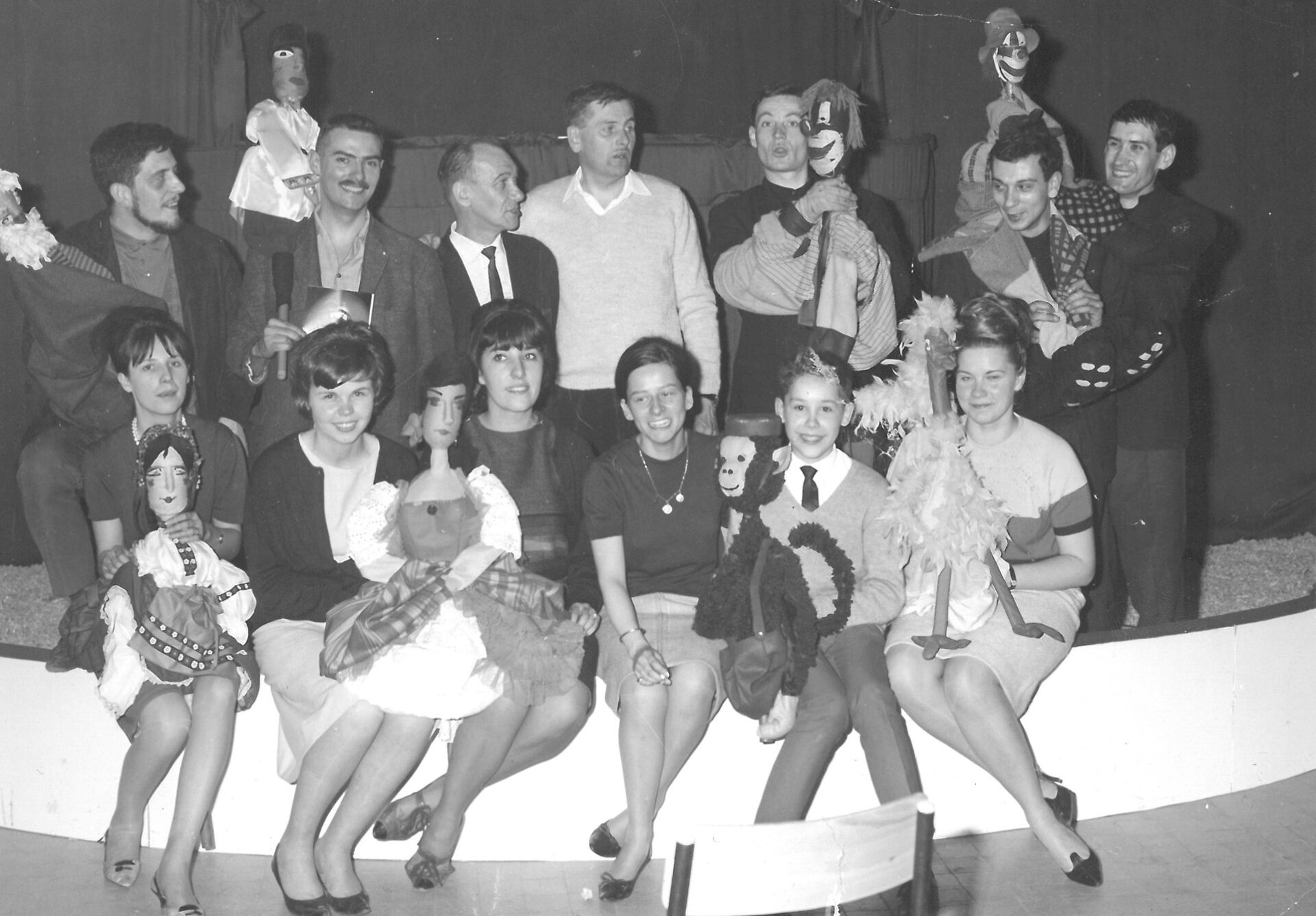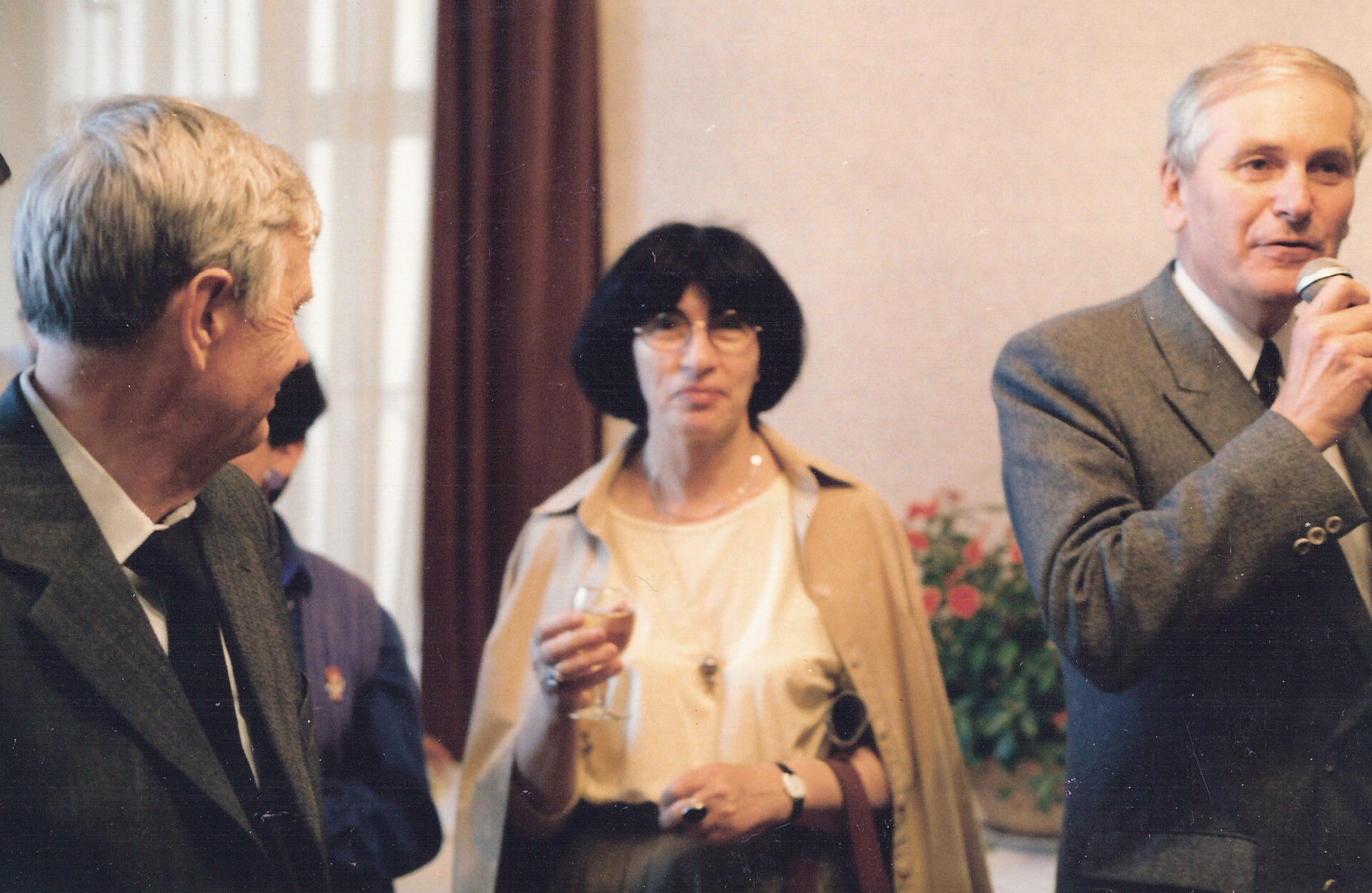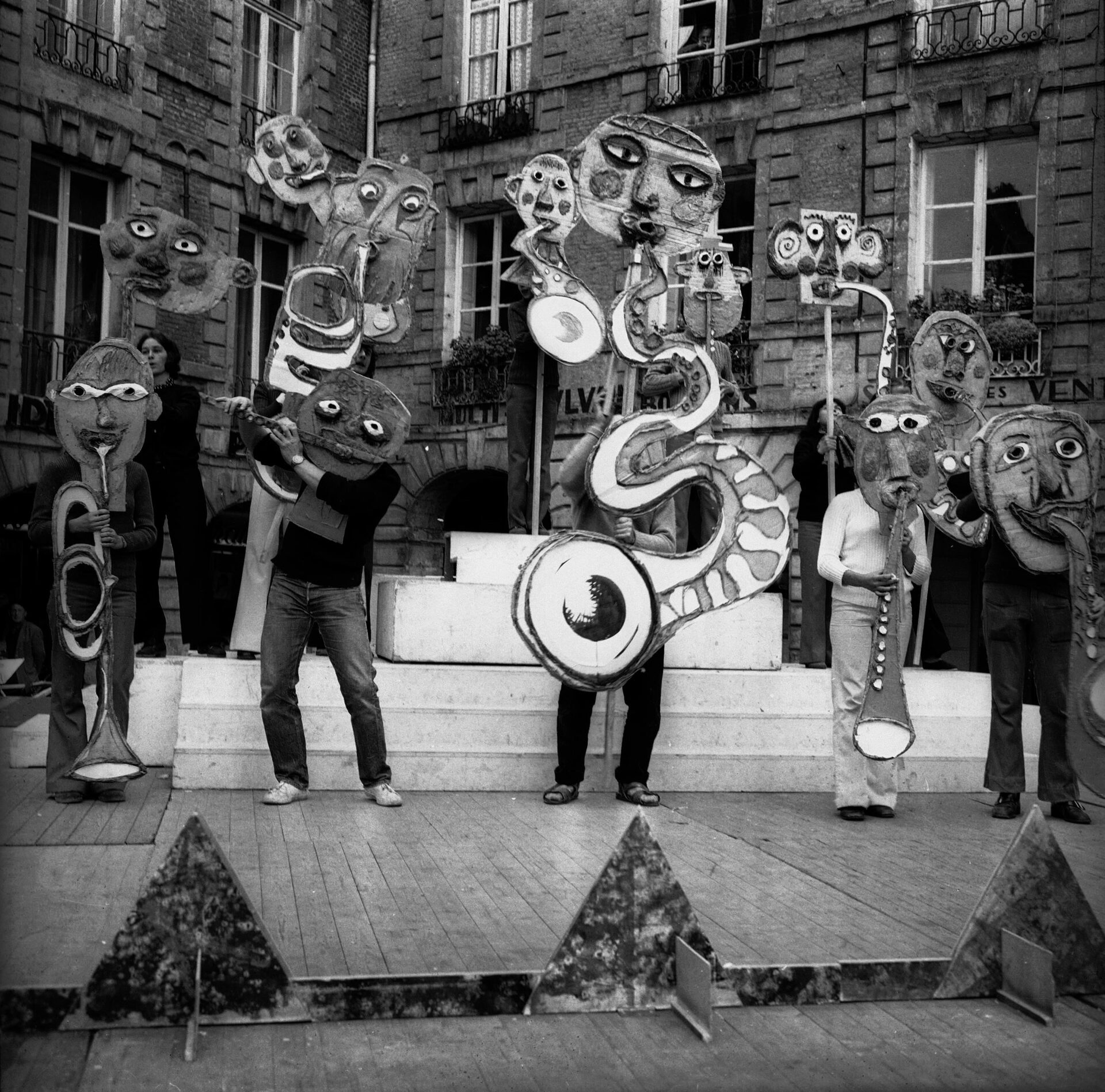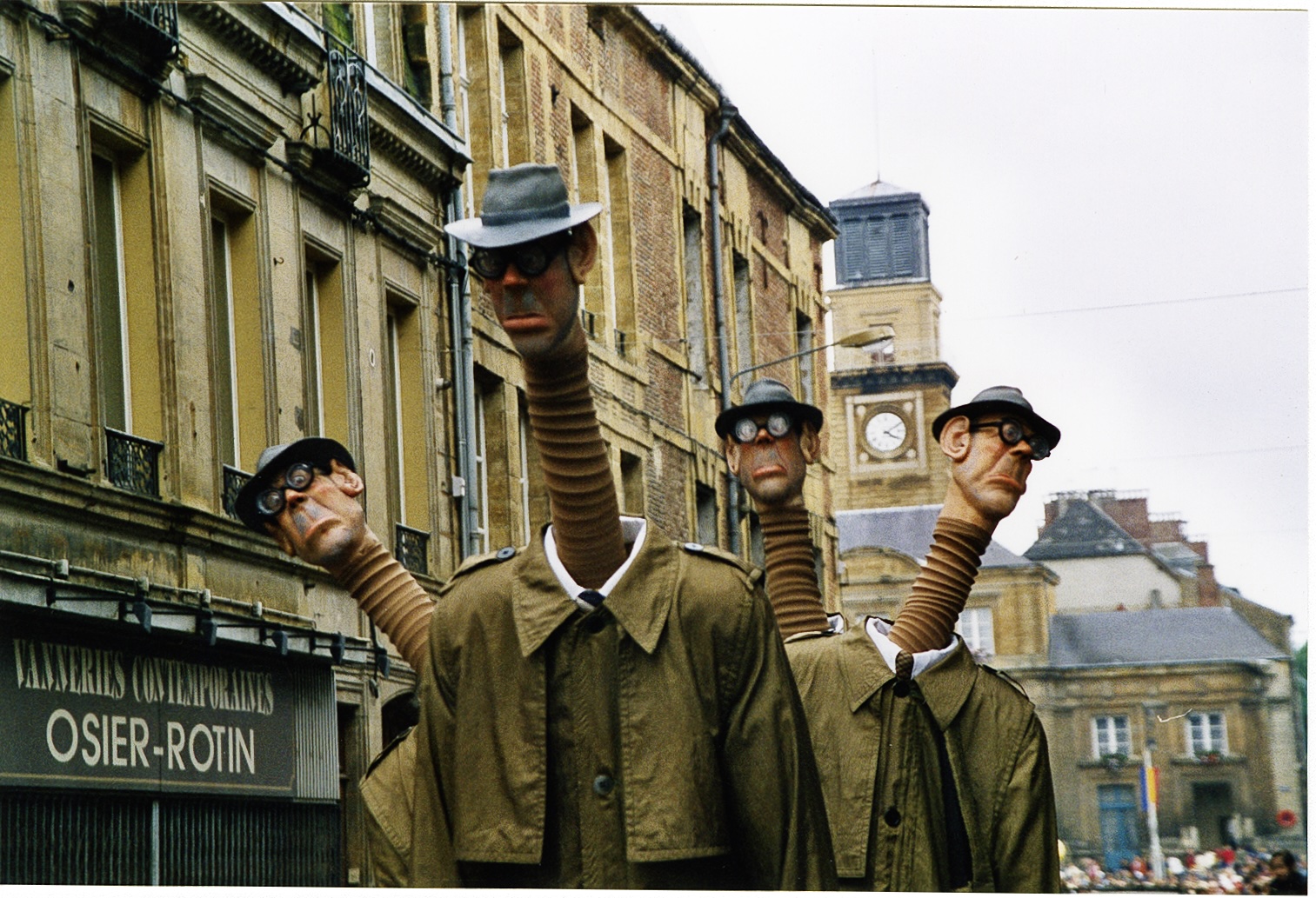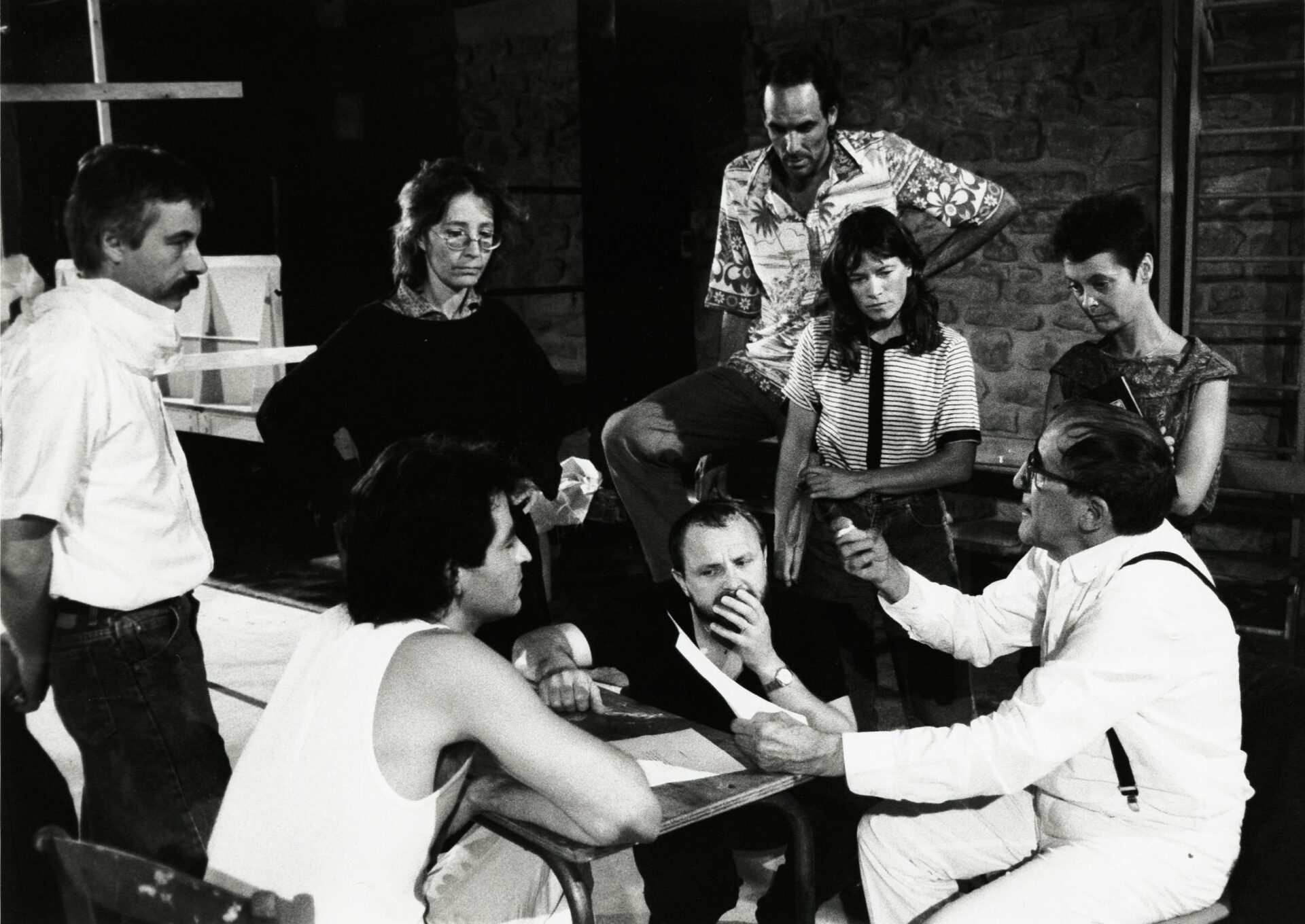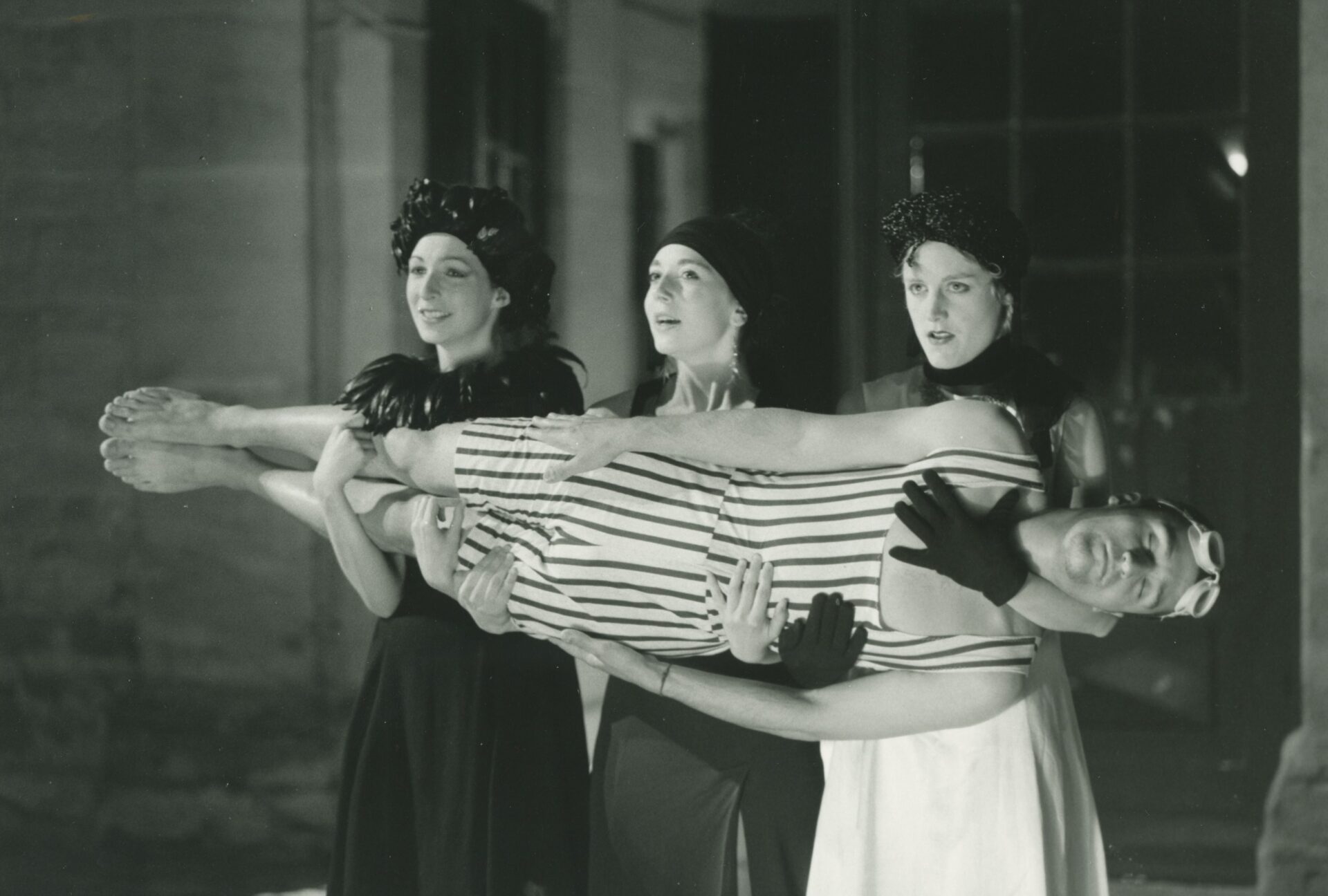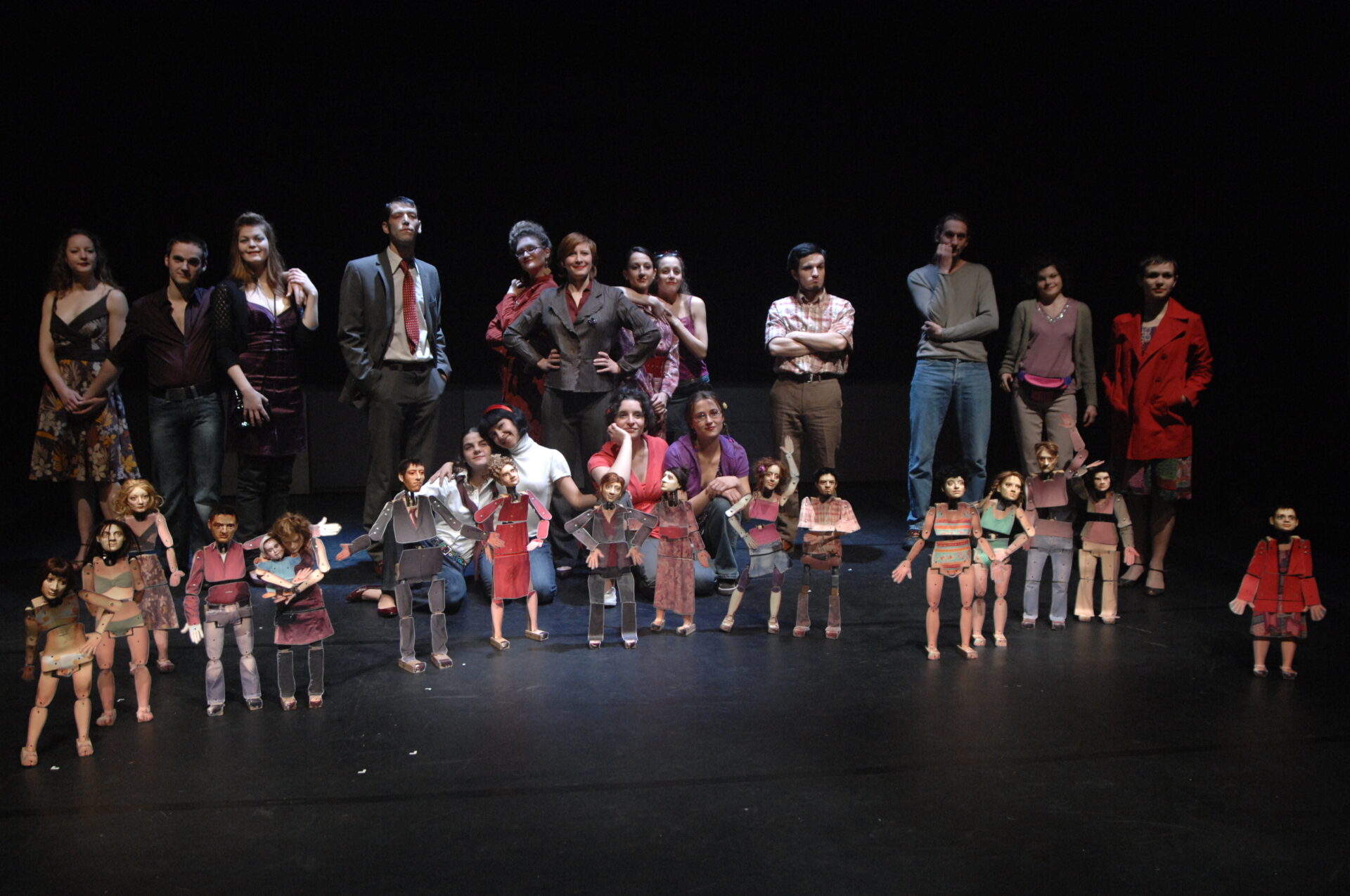History
The Pôle International de la Marionnette – Jacques Félix was born on January 1, 2025 from the merger of the Petits Comédiens de Chiffons and the Institut International de la Marionnette.
In the beginning, there was Petits Comédiens de Chiffons, Jacques Félix’s artistic company, founded in 1948 to support his puppet shows. In 1961, it became the umbrella organization for the Festival Mondial des Théâtres de Marionnettes, now the world’s largest artistic gathering for the puppet arts. The FMTM took place irregularly at first (1961, 1967, 1972), then every three years from 1976, before becoming biennial from 2009.
To prolong the joy of encounters, the dialogue between cultures and the reunion of tradition and modernity, Jacques Félix created the Institut International de la Marionnette 20 years after the FMTM, in 1981. Its mission is to provide a permanent home for artists and researchers from all over the world interested in the puppet arts. The Institute began by devising a professional training program with an international reputation. Then it created a school like no other: ESNAM – Ecole Nationale Supérieure des Arts de la Marionnette. An ambitious research program completes the Institute’s missions.
The gradual recognition of the puppet arts by the public authorities and the structuring of the sector by the French Ministry of Culture in the early 2020s have recomposed their landscape.
This movement has called into question the meaning of the cohabitation, in Charleville-Mézières, of two driving structures of the same sector, sometimes partners but nonetheless distinct despite their unique founder.
The Ministry of Culture and the local authorities involved in the two projects – the Région Grand Est, the Département des Ardennes, the Agglomération Ardenne Métropole and the Ville de Charleville-Mézières – then proposed that the Petits Comédiens de Chiffons and the Institut International de la Marionnette join forces.
In May 2022, the governing bodies of both associations approved the project and the plan for the merger.
The Pôle’s prefiguration committee insisted that the merger of the two institutions should result, thanks to the fine-tuned articulation of their complementary missions the extension and amplification of their projects, through new actions in the service of the discipline and the region.
This is how the Pôle International de la Marionnette – Jacques Félix came into being, as the network head of the puppetry sector in France and worldwide.

